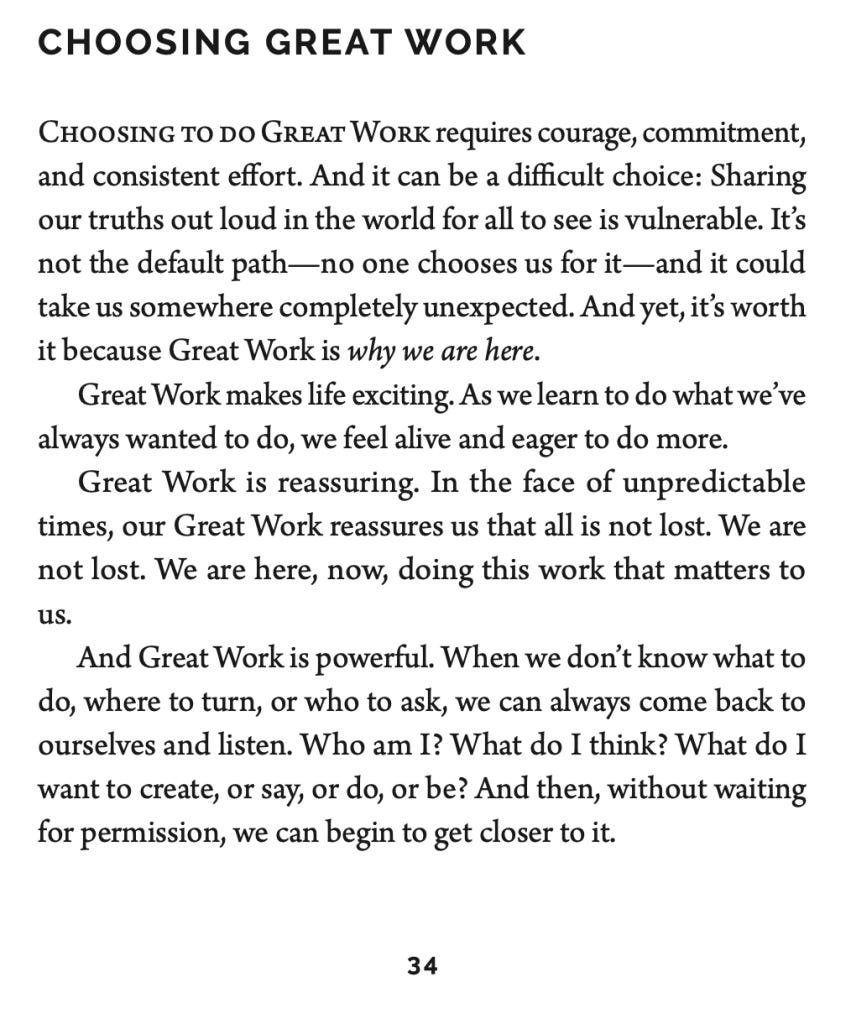How To Feel Better Depending On What’s Wrong
This month marks the 7th anniversary of my trip to the emergency room. I was so sure I was having a heart attack… but, no.
Panic attack. Which isn’t better, by the way!
At the time I was working in consulting running 14 projects, all of which were in a frenzy to complete before the end of the academic fiscal year on July 1.
I was working all the time: weekends, late nights, early mornings.
The way I was doing it was too much, and it left me very (very) burned out.
I remember my husband encouraging me to “take a break and do something that would delight you.”
But, honestly?
I didn’t want to be delighted. I wanted to be asleep, alone, in a state of deep repair.
Preferably with food delivery and Europe From Above silently playing on TV.
It’s on Disney Plus; there is no better way to nap.
Delight? No.
Oblivion? YES.
In the intervening years, as I’ve been busy learning how to do Great Work without sacrificing everything else, I’ve noticed that this is a common reaction to burnout.
When we are running on fumes, we don’t want to go to a museum, or a Broadway show, or play bocce ball.
We want to sleep, eat, watch tv, and then sleep again.
For (what feels like) forever.
This is the burden of full-scale burnout. (If you’ve never experienced this…. don’t!)
The good news is that it does not last forever. Once you’ve stopped injuring your mental health– either because the environment wasn’t too toxic, and you were able to change your habits and mindset and experience things differently, or you changed your external circumstances (ie, get a new job)– you will eventually enter what I like to call “early recovery.”
Early Recovery is Your Chance to Renegotiate Commitments WIth Yourself (and Others)
Early recovery is when you have some energy, and begin to feel the pull to get back into things that you enjoy. This is a great time to do a few things that delight you, but also to focus on reigning in your life writ large.
Are you massively overcommitted? Fix that!
I recommend that you work your way through all the strategies I outline in Chapter 3 of my book:
Say NO to A LOT of things
Back out of overcommitments (yep. Literally say, “I know I said I would, but I won’t”
Park your projects in short, medium, or long-term parking
Do B-work (just good enough, and NO BETTER)
Build your commitment to what matters most (remember what you love, and why)
It is important that you don’t overdo it when you are in early recovery! I see plenty of people who feel a little better and then dive right back into a hectic pace, and end up back in burnout.
DO NOT DO THIS.
Instead, do a few things that you enjoy, and then focus on creating new habits and mindsets that will you can live differently, even if nothing changes externally.
Focus on these basic self-management tactics will get you back on your feet. You will look at your life and feel in control and capable of negotiating your commitments and pursuing your desires.
Great Work Comes A-Whispering
This feeling of being in command of your life and time will create a little bit of space in your mind for fun, purpose, and meaning… and then… who’s that whispering in your ear?
You will remember that you’ve wanted to write a book.
You will remember that you are captivated by the idea of hiking the Appalachian trail.
“Do I have time to caretaker a sourdough starter?” you ponder.
“Could I play piano? Sing? Go to the Met? Watch Blown Away?”
“What would it be like to join a softball league?”
All of these are signs that you are starting to remember your Great Work.
Now that you can hear that whisper, give your Great Work some actual time.
Experiment… just a little.
See how it makes you feel.
(Hint: It will make you feel GREAT)
Excerpt from Great Work, Page 34:
Your Great Work is Yours For Good
You don’t have to be in a hurry. Your Great Work will never leave you, so you can take your time.
You can ease into it.
You can try a few things that don’t work, and then try something else.
The key is that once you are feeling better, DO your Great Work!
Every week, at least.
Every day, if possible.
If you want support to re-negotiate your commitments with yourself and find time and space for your Great Work,
I encourage you to join the Great Work Community.
Great Work is easier to do when other people believe in you, hold you accountable, and celebrate your wins.





